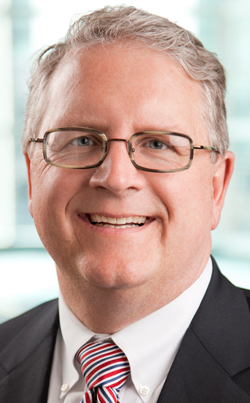 |
Mark Mailliard, M.D. |
Many of the estimated 3 million people in the U.S. who have the virus — an overwhelming majority are baby boomers — don’t know they are infected. Hepatitis C is responsible for 12,000 deaths annually in the U.S, according to the Centers for Disease Control and Prevention.
UNMC, a regional referral center for hepatitis C, is part of the Hepatitis C Therapeutic Registry and Research Network, or HCV-TARGET. The network will track thousands of patients over the next five years to monitor the effectiveness and safety of new drugs, determining which are most effective and can cure the disease most quickly with the fewest side effects.
The project is important because in the next couple of years, several new, more superior medications will be approved for hepatitis C therapy, said Mark Mailliard, M.D., chief of the UNMC Division of Gastroenterology and Hepatology.
“With the availability of new drugs, we will be able to capture a wealth of information that’s critical to determining which drugs are best and for which patients,” Dr. Mailliard said. “This is a great example of translational research at its best — taking the latest research discoveries to patients.”
|
It’s estimated about 2 percent of the world’s population is infected with hepatitis C. If left untreated, the virus causes liver damage, cancer or cirrhosis. Fatigue may be the only symptom of the disease.
Anyone being treated for the virus using newer medications is eligible to participate in the registry.
Dr. Mailliard said most of the current drugs for hepatitis C — typically interferon and ribavirin — have many side effects and require self-administered injections. But, he said, over the next three years, the use of interferon will slowly go away because of new drugs that will be more effective with fewer side effects.
“We’re really very excited about the registry. So far we’ve provided outcome data on more than 120 patients of the 2,000 studied so far,” Dr. Mailliard said. “Our treatment success rate was significantly better than the average rate.
“Not only will treatment reduce the chance for liver failure and liver cancer, the diagnosis reminds patients of the danger of alcohol use and obesity, which increase the risk of getting cirrhosis and cancer.”